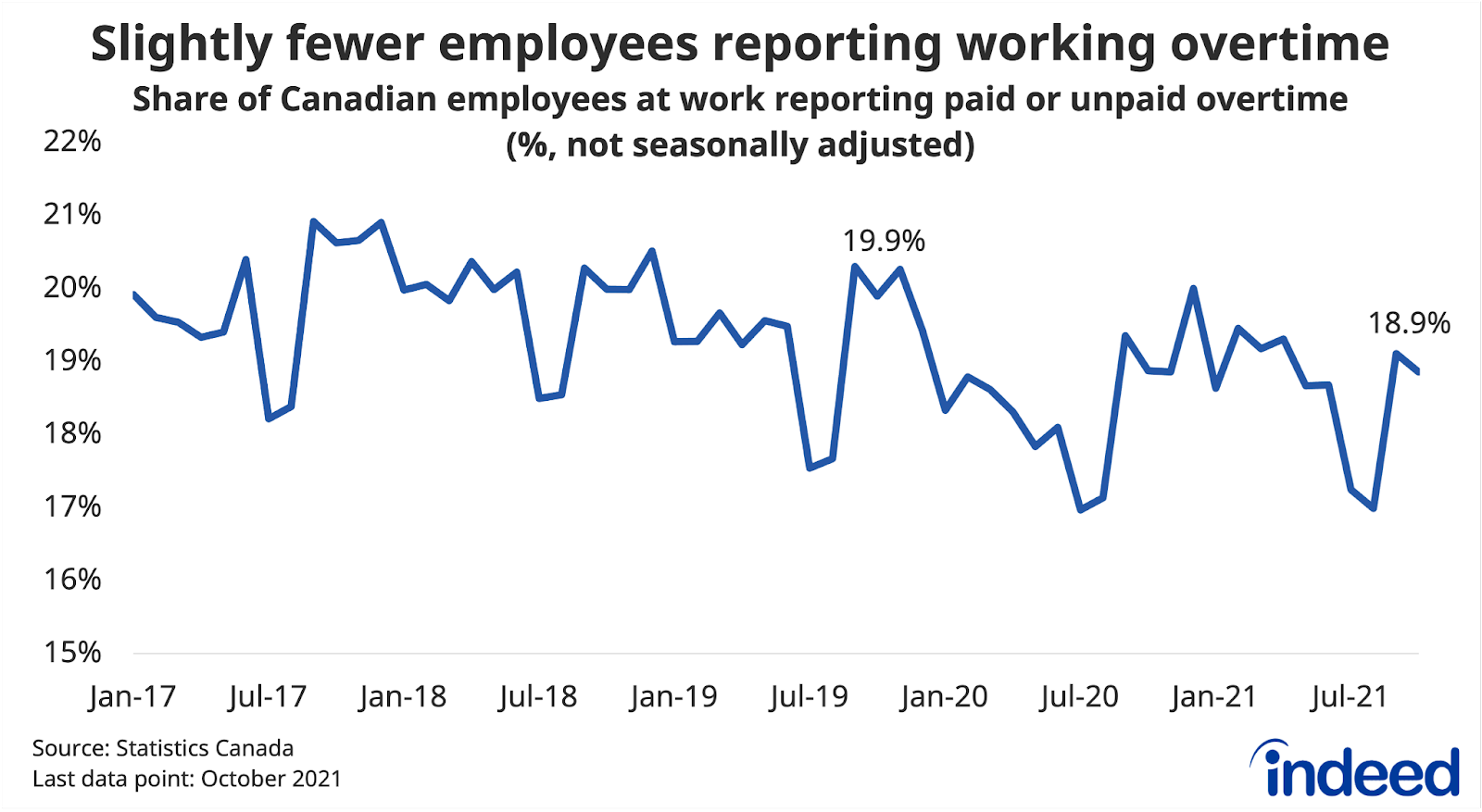One option often available to businesses struggling to hire new workers is to ask their existing staff to put in overtime. However, despite record job vacancies creating recruitment challenges, the prevalence of Canadian employees reporting working overtime is down slightly from pre-pandemic rates.
The Labour Force Survey asks employees the number of paid overtime hours, as well as “extra unpaid hours” they worked during the survey reference week. In both October 2018 and 2019, roughly 20% of employees who were at work reported working more hours than usual, either paid or unpaid. This October, the share working overtime was 19%, with most of the decline reflecting fewer workers doing paid overtime, while the share working unpaid overtime ticked down just slightly.
The modest overall decline in reported rates of overtime has been fairly broad-based across industries. Between August and October, the average share of workers reporting extra hours, paid or unpaid, was down compared to two years prior in 11 of 16 industry groups, including professional, scientific and technical services, construction, manufacturing, and accommodation and food services. Meanwhile, business, building and other support services, and health care and social assistance saw small increases, while utilities was the only industry to see a notable jump.
Despite little surge in the prevalence of overtime at this stage of the recovery, average weekly hours of Canadian workers have increased from their early pandemic lows. While the ranks of Canadians who are employed, but not working any hours is still somewhat elevated, the number working some, but less than half their usual hours, fell below its pre-pandemic level in October. Meanwhile, the share of workers whose usual hours are less than 30 per week, but who would prefer full-time hours has also dropped below 2019 levels. If labour market conditions continue to tighten, we could see more employees start reporting more overtime work, especially of the paid variety, but we’re not there yet.






